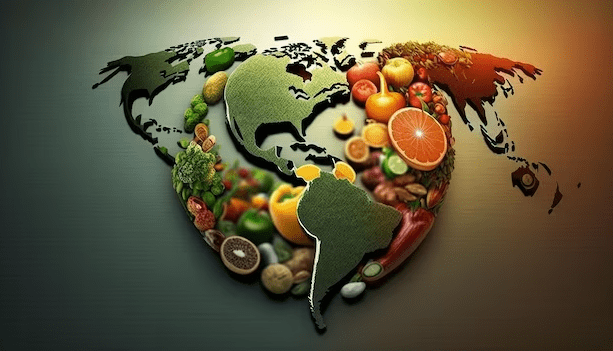International trade in food and agriculture can help balance global food supply and demand by moving food from surplus to deficit areas, according to a report by the OECD and FAO.
Food availability refers to the amount and variety of food that is available for consumption in a given place and time.
For whom is this important? In particular, countries with limited natural resources to produce adequate food rely heavily on imports of basic and high-value food commodities, and imports generally account for a large proportion of their total calorie and protein availability.
In this regard, Save Foods reports that the world’s population is expected to grow to nearly 10 billion people by 2050, which will drive agricultural demand by approximately 50%, according to FAO.
Therefore, providing healthy and safe food to feed the world’s population is one of the greatest challenges of the 21st century, accentuated by the context of a fragile global economy.
Globally, about one third of the food produced (estimated at around 1.3 billion tons) is lost or wasted along the food chain, from production to consumption, according to FAO.
International trade
Globally, trade has become increasingly important for food security in recent decades, as population growth and per capita food demand has been higher in net food importing countries than in net food exporting countries.
The same OECD/FAO report predicts that this trend will continue over the next decade: traditional exporters will increase their trade surplus and net importers will see their trade deficit widen.
Climate change
Given the significant and uneven risks to agricultural production arising from climate change, international trade is likely to become even more significant in the future as demand for food grows in regions where productivity gains will not be sufficient to meet demand growth.
Trade flows may partially offset how local climate change affects productivity, allowing regions with positive (or less negative) effects to supply those with more negative effects.

